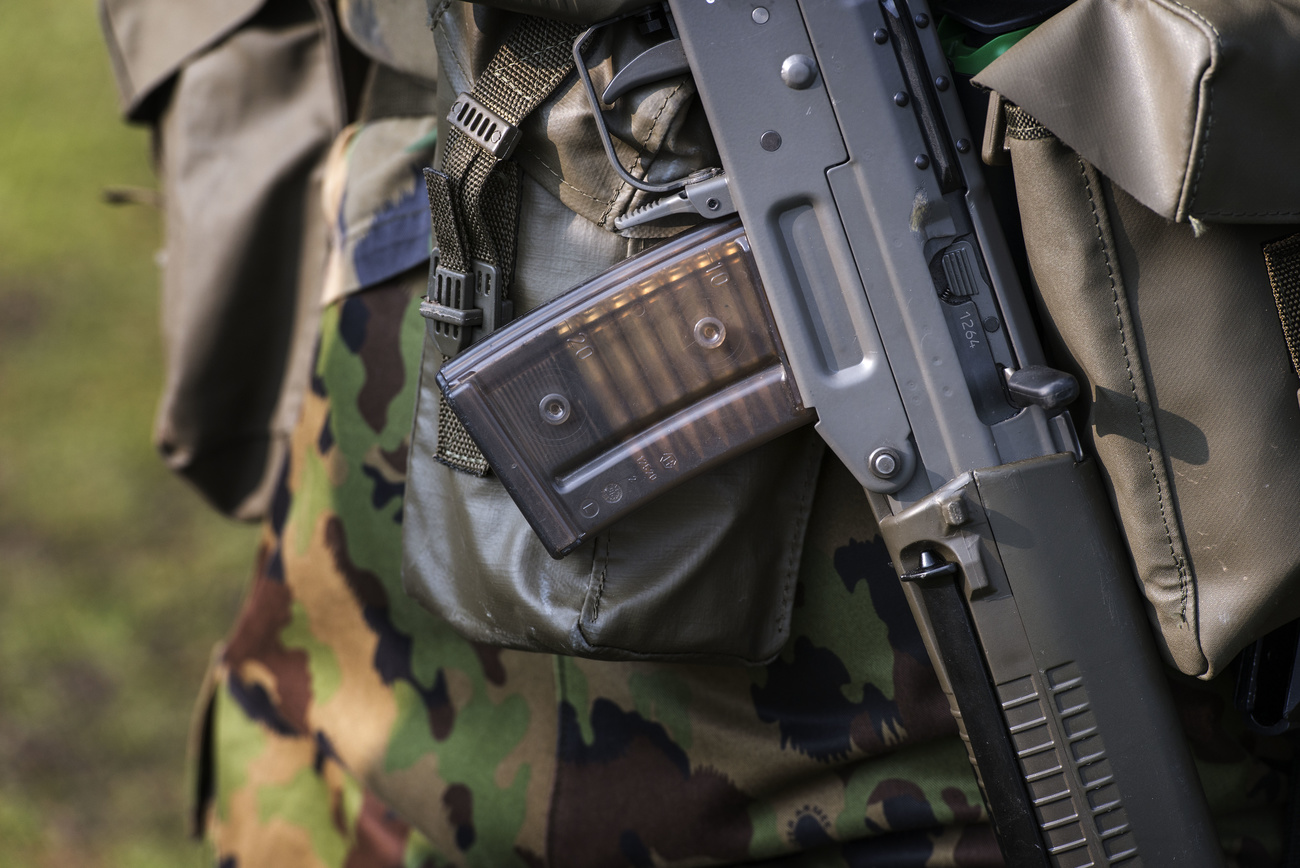‘Guns now, pay later’ plan for cash-strapped Swiss army

Switzerland’s army wants to get round its current funding shortage by ordering new weapons on credit, says armed forces chief Thomas Süssli.
Süssli told Swiss public broadcaster SRF that he would like parliament to guarantee a credit facility for new artillery systems and anti-tank weapons. Without investments in ground forces, the army would lose effectiveness in the medium-term, he warned.
+ The Swiss army: your questions answered
Setting up a credit facility would allow Switzerland to “get into the queue with a manufacturer earlier, but then still only purchase later and pay later”, Süssli said in a radio interview on Saturday.
An added problem is long waiting times for weapons deliveries due to the stretched capacity of the defence industry.
The cash-strapped Swiss army is unable to make any major payments for armaments until the 2030s. It is facing a CHF1.4 billion funding gap over the next three years, including an CHF800 million shortfall this year.
The Swiss armed forces had outstanding financial obligations totalling around CHF13 billion at the end of 2022. Süssli and Defence Minister Viola Amherd told the Security Policy Committee of the Senate last Thursday that it would not be possible to settle these liabilities in full until 2028.
Following Russia’s invasion of Ukraine, Switzerland decided to boost army spending to 1% of gross domestic product. But the time scale for achieving this goal through a gradual increase in funding has been extended from 2030 to 2035.
Slowing down the rate of accelerated military investment has increased the existing immediate financial problems of the army, Süssli complained.

More
Media report: Swiss army to face big financial issues in coming years
This news story has been written and carefully fact-checked by an external editorial team. At SWI swissinfo.ch we select the most relevant news for an international audience and use automatic translation tools such as DeepL to translate it into English. Providing you with automatically translated news gives us the time to write more in-depth articles. You can find them here.
If you want to know more about how we work, have a look here, and if you have feedback on this news story please write to english@swissinfo.ch.

In compliance with the JTI standards
More: SWI swissinfo.ch certified by the Journalism Trust Initiative


You can find an overview of ongoing debates with our journalists here. Please join us!
If you want to start a conversation about a topic raised in this article or want to report factual errors, email us at english@swissinfo.ch.